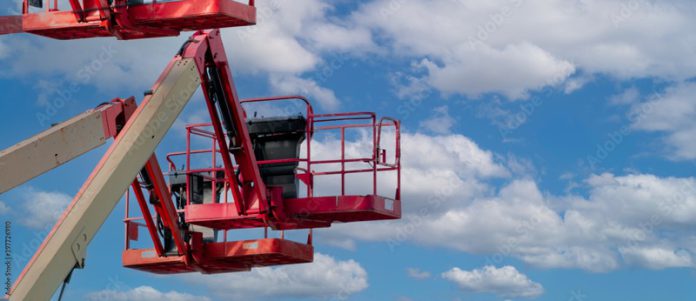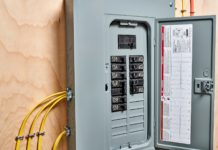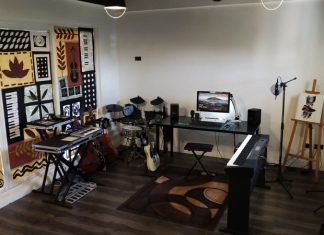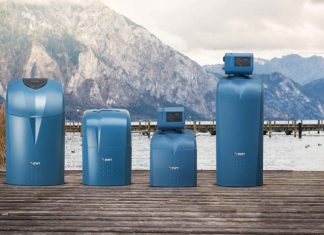So, you’ve got a project that requires reaching new heights, figuratively and literally. Maybe you’re painting the eaves of your house, trimming towering trees, or installing intricate Christmas lights. Whatever the task, it demands elevation – and that’s where mobile hydraulic platforms come in. But before you start scaling new heights, here’s a comprehensive guide to renting these powerful pieces of equipment:
What are Mobile Hydraulic Platforms (MHPs)?
Think of MHPs as your temporary genie in a bottle, granting wishes of reaching seemingly impossible heights. These platforms, also known as boom lifts, scissor lifts, or manlifts, come in various shapes and sizes, each offering unique advantages. Boom lifts extend horizontally like an arm, providing access to hard-to-reach areas. Scissor lifts, on the other hand, rise straight up, perfect for vertical tasks.
Why Rent?
Unless you’re a professional contractor with frequent high-reaching needs, purchasing an MHP is an impractical expense. Renting offers numerous benefits:
- Cost-effective: Renting avoids the hefty upfront investment and ongoing maintenance expenses of owning.
- Variety: Access a diverse range of platforms to suit your specific project requirements.
- Flexibility: Rent for the exact duration you need, from a few hours to weeks.
- No storage hassles: Eliminate the burden of finding and maintaining storage space for the equipment.
What to consider before you rent
Project specifics:
- Working height: How high do you need to reach? Different platforms offer varying heights, so knowing your specific requirement is crucial.
- Reach: Do you need to extend horizontally as well as vertically? Boom lifts offer greater reach, while scissor lifts are ideal for straight-up access.
- Weight capacity: What weight will the platform be carrying (people, tools, materials)? Exceeding the capacity is a safety hazard and can damage the platform.
- Terrain: Are you working on uneven ground? Some platforms have better stability and maneuverability on rough terrain.
Your skills and experience:
- Have you operated a mobile hydraulic platform before? If not, consider seeking training or opting for a platform with simpler controls.
- Are you comfortable working at heights? If not, additional safety measures like harnesses or guardrails might be necessary.
Regulations and permits:
- Check local regulations: Some areas require specific licenses or permits for operating mobile hydraulic platforms.
- Insurance: Ensure both you and the rental company have adequate insurance coverage.
Safety First:
Operating an MHP requires training and awareness. Here are some safety essentials:
- Get certified: Most reputable rental companies require operators to have valid MHP certifications.
- Inspect the platform: Before use, thoroughly inspect for any damage or malfunction.
- Follow regulations: Familiarize yourself with and adhere to all safety regulations specific to your region.
- Use fall protection: Always wear a harness and secured lifeline when working on the platform.
Beyond MHPs: Your Complete Access Solution:
MHPs are just one piece of the access equipment puzzle. Depending on your project, you might also need:
- Trailer rentals: Transport your MHP and materials easily with car trailers, box trailers, or hire trailers.
- Nail guns & post hole borers: Tackle construction projects efficiently.
- Compressors & water blasters: Power through cleaning and demolition tasks.
- Metal detectors: Unearth hidden treasures or locate buried utilities safely.
- Floor sanders & trenchers: For professional-grade home improvement projects.
Where to rent mobile hydraulic platforms
Equipment rental companies:
These companies specialize in renting various construction and access equipment, including mobile hydraulic platforms.
They offer a wide range of options and can provide expert advice on choosing the right platform.
Online rental platforms:
Several online platforms connect renters with equipment owners, including mobile hydraulic platforms.
Compare prices and options from different providers before booking.
Tool rental stores:
Some tool rental stores might offer a limited selection of mobile hydraulic platforms for smaller projects.
What to ask the rental company
Specific platform details: Make sure the platform meets your project requirements (height, reach, capacity).
- Safety features: Inquire about the platform’s safety features like emergency stop buttons, overload protection, and guardrails.
- Delivery and setup: Ask about delivery fees and if the company offers setup assistance.
- Training: If you’re a first-time user, inquire about training options or instructional materials.
- Insurance and damage: Understand the insurance coverage and your liability in case of damage.
Bonus tips for a smooth rental experience
- Book well in advance: Popular platforms get booked quickly, especially during peak seasons.
- Inspect the platform before use: Check for any damage or malfunctioning components.
- Follow safety instructions: Always wear appropriate safety gear and adhere to the manufacturer’s guidelines.
- Never exceed the platform’s capacity or working height.
- Be aware of your surroundings: Watch out for overhead obstacles and power lines.
- Don’t operate the platform under the influence of drugs or alcohol.
In summary
Renting mobile hydraulic platforms opens up a world of possibilities, allowing you to tackle projects that would otherwise be impossible. By following these tips and prioritizing safety, you can ensure your project is a success, reaching new heights with confidence and ease.















